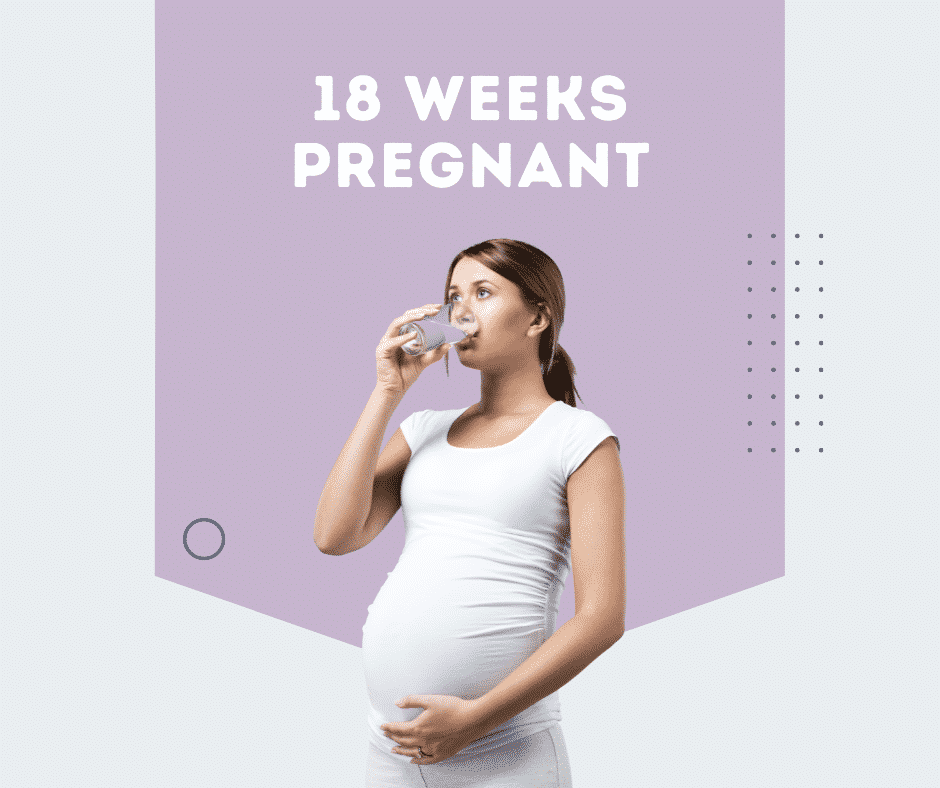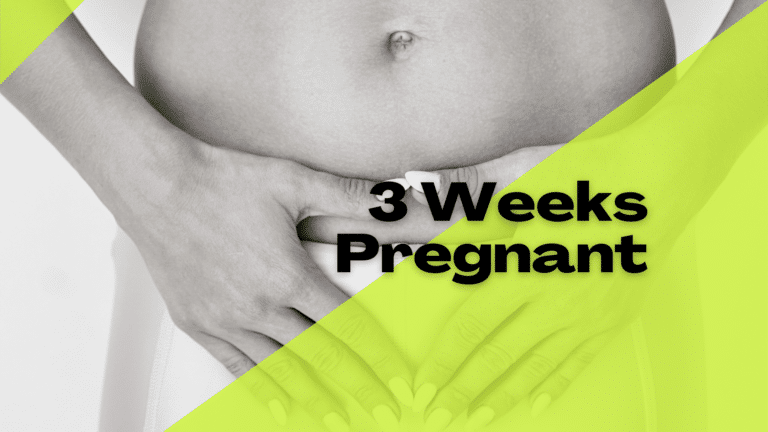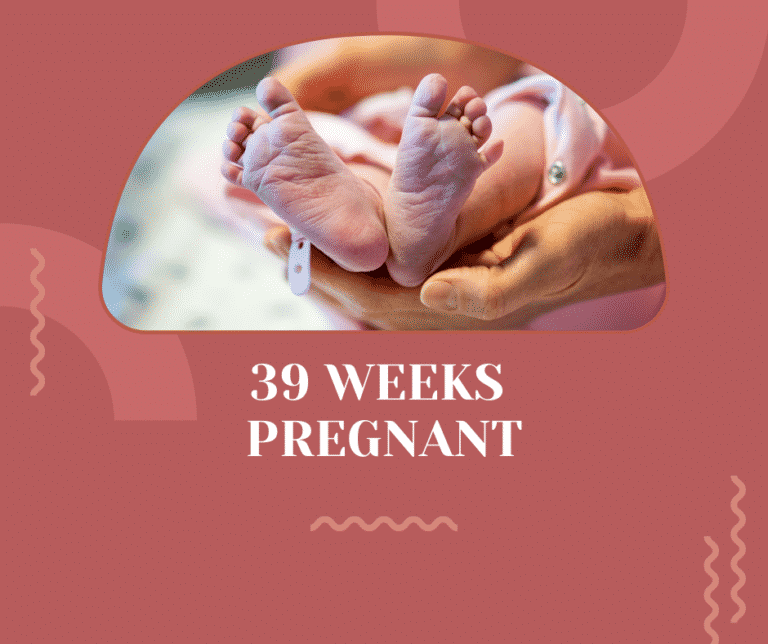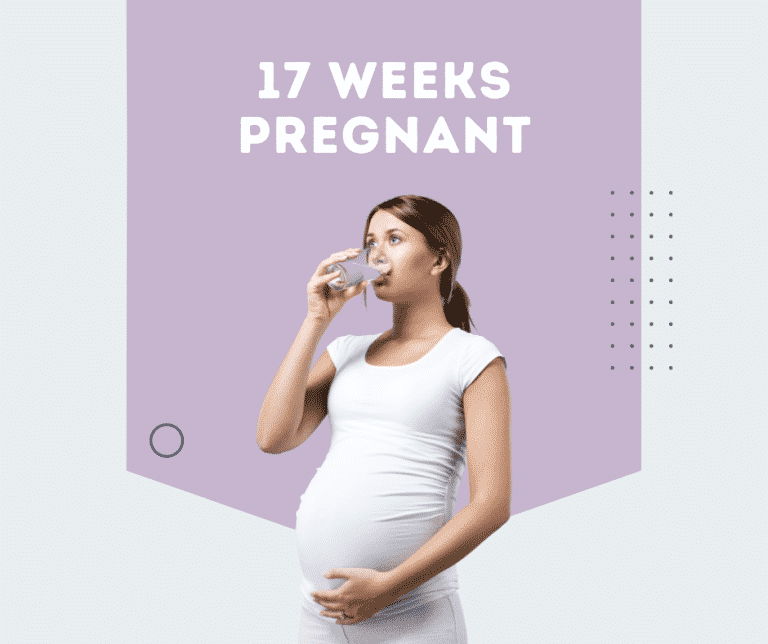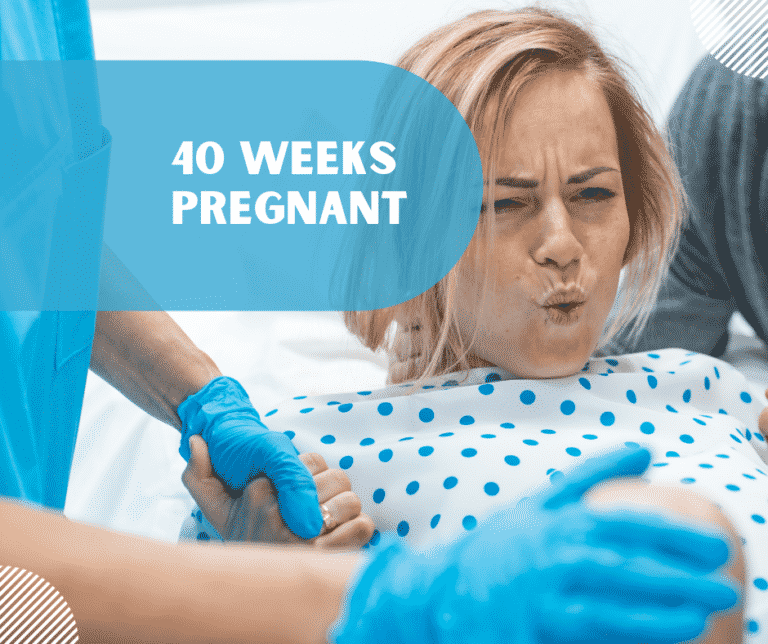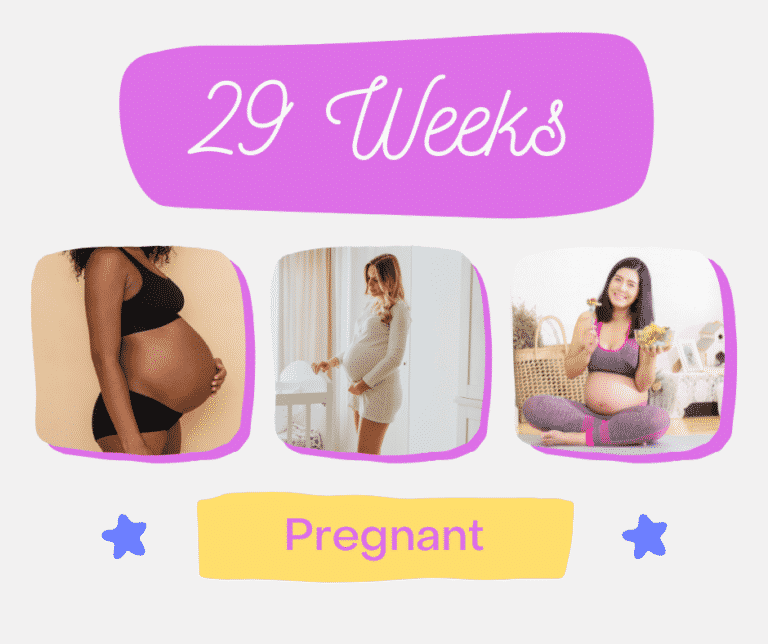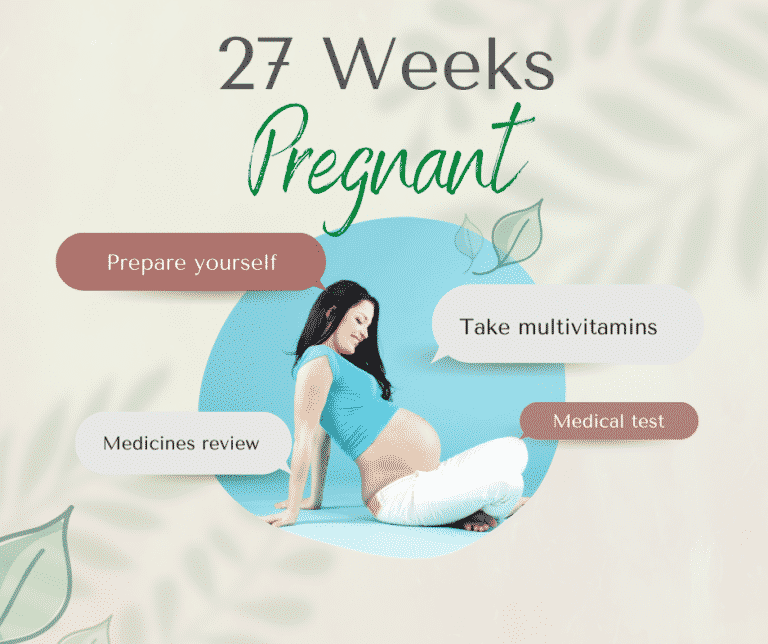18 Weeks Pregnant: Signs, Tips, Symptoms, Baby’s Development
Published on April 1, 2022 – Last Updated on October 18, 2022
As you reach 18 weeks pregnant, you may feel new emotions and sensations. You may be curious about what to expect in the coming weeks. This blog post will provide information on what changes to expect as you move into the third trimester. Remember that every pregnancy is unique, so not all women will experience the symptoms described below.
What to expect during the 18th week of pregnancy
This week, you may expect to feel more kicks and movements as your baby grows and becomes more active. You may also notice changes in your energy levels and mood and some physical changes such as increased Braxton Hicks contractions. It is essential to stay hydrated, especially if you are experiencing frequent urination. It would be best if you also continued to eat a healthy diet and get plenty of exercises. Use our due date predictor to find out precisely that you are 18 weeks pregnant.
During the 18th week of pregnancy, you may expect the following changes:
- Your baby is now the size of sweet potato and weighs about 9 ounces.
- In addition, you may be feeling more energetic as your pregnancy hormone levels start to stabilize.
- You may notice that your skin is beginning to stretch and become more sensitive. You may also see some darkening around your nipples (called the areola), and some stretch marks may start to appear.
- Also, you may feel Braxton Hicks contractions, which are harmless practice contractions that help your body prepare for labor.
- Your baby’s bones are hardening and may start to move around more.
Changes in Pregnant body
During the 18th week, You may notice different changes in your body. Many women start to feel more kicks and movements from the baby. This is because as the baby grows, they will become more active. You may also begin to feel more energy due to the hormone levels starting to stabilize. Besides feeling these changes, you may also see physical changes such as skin stretching, darkening around your nipples, and stretch marks. Lastly, you may start to feel Braxton Hicks contractions which are harmless and help your body prepare for labor. Although every pregnancy is unique, not all women will experience the symptoms described below.
At this time, the Blood Pressure (High or Even low blood pressure) may change, and you may feel like you are urinating more often. Make sure you drink a lot of water and eat nutritious meals to maintain your skin looking good. This will help your body get the nutrients to grow a healthy baby. It would be best if you also continued to exercise as much as possible. Exercise releases endorphins which will help improve your mood.
The leg cramps may return and become more frequent. Try to stretch before bed to help combat this. As your skin stretches, you may start to get itchy, and the growing uterus may cause some back and spinal cord pain. These are regular changes and should not be a cause for alarm.
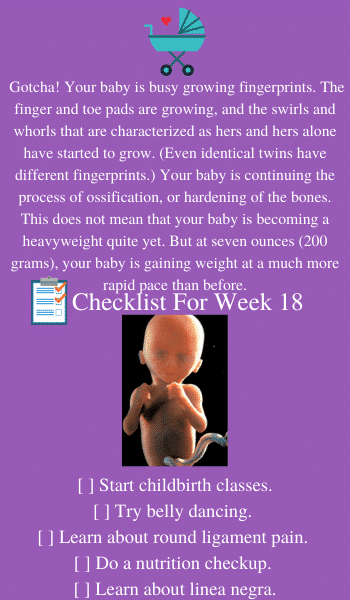
Make sure to check out our Pregnancy Week by Week post where you can find great information for each stage of pregnancy based on weeks.
Second Trimester:
The second trimester of pregnancy is often called the “golden period” because most women feel more energetic and experience fewer symptoms than in the earlier stages of pregnancy. The baby is growing quickly and may be more active. You will probably start to feel the baby move, and you may begin to show.
Fetal development: 18th weeks pregnant
Baby’s Development
During the 18th week, your baby is now the size of a sweet potato, and your baby weighs about 9 ounces. The bones are hardening, and they may start to move around more. Their nervous system develops, and myelin layers grow to cover their nerve cells. The baby’s eyes are also developing, and they will start to produce tears. With a Doppler device, you may be able to hear your baby’s heartbeat. The developing digestive system has been going through its paces for several weeks. Your baby swallows amniotic fluid, making its way through the stomach and intestines.
Baby’s Skin:
Now Baby’s skin is under development; the lanugo will start to disappear within the next few weeks.
Baby’s Movements:
Your baby is becoming more active, but you may not yet be aware of it. Particularly in the case of a first pregnancy, it’s completely normal not to touch any movement until the later stages of pregnancy.
Baby’s heart:
The baby’s heart is now fully developed and is beating around 150 times per minute.
Baby’s Head:
The baby’s head is now about half the size of the body.
Baby’s Brain:
The baby’s brain is still growing and developing.
Baby’s Muscles:
The baby’s muscles are getting stronger.
Baby’s Eye:
The baby’s eyes are still developing, but they can now see the light.
Pregnancy Symptoms: Pregnancy Week 18
At 18 weeks pregnant, you may be experiencing some new symptoms, including:
- Increased energy levels
- A growing belly
- Morning sickness (which may now be called all day sickness)
- Braxton Hicks contractions
- Changes in your vaginal discharge
- Difficulty sleeping
- Mood swings
Each woman experiences pregnancy differently, so you may not experience all of these symptoms. However, if you are concerned about any symptoms, speak with your doctor.
Increased Energy level:
At pregnancy week 18, You may find that your energy levels start to increase at this point in your pregnancy. This is due to the lowered levels of the hormone progesterone, which can make you feel tired.
A Growing Belly:
Your belly will continue to grow as your baby grows. As a result, you may notice that your clothes are starting to feel tighter around your waist. Also, Drastic or sudden weight gain or weight loss could be signs of a problem.
Morning Sickness:
At week 18, You may still be experiencing morning sickness, which can now be called all-day sickness. The increase in pregnancy hormones causes this.
Braxton Hicks Contractions:
You could begin to experience Braxton Hicks contractions at 18 weeks pregnant, which are uterine contractions that your body performs in preparation for childbirth. These are usually painless and last for only a few seconds.
Read more about contractions: contraction tracker, contraction tracker app and best app to track contractions.
Changes in Vaginal Discharge:
You may notice that your vaginal discharge changes in your pregnancy. For example, it may become thicker and more opaque.
Difficulty Sleeping:
You may find it harder to sleep at this point in your pregnancy due to the increase in the size of your uterus and the changes in your body.
Mood Swings:
At 18 weeks pregnant, You may experience mood swings as your hormones continue to change. These swings can be caused by some factors, including stress and fatigue.
18 Weeks Fetus
An 18-week fetus is a human being at a critical stage of development. The 18th week is when the baby’s brain and nervous system are fully developed. The baby can now hear sounds from outside the womb and is beginning to develop a response to them. This is also the time when the baby’s eyes are beginning to form, and the bones are beginning to harden.
The baby grows and gains weight and is now around 6 inches long. At 18 weeks, the fetus is a unique individual, with its own fingerprints and DNA. It is capable of feeling pain, and its heart is regularly beating. The 18-week fetus is a human being who deserves to be protected from harm.
Tips for staying healthy and comfortable during this stage of your pregnancy
You can do several things to stay healthy and comfortable during the second trimester of your pregnancy. Some tips include:
Eating a healthy diet:
Aim to eat a healthy diet, including plenty of fruits, vegetables, and whole grains. Avoid processed foods and sugary drinks (Keep low blood sugar). It would be best if you continued to eat a healthy diet during your pregnancy. This means eating plenty of fruits, vegetables, whole grains, and lean protein.
Exercising regularly:
Moderate exercise is a great way to stay healthy at 18 weeks pregnant, and It can help improve your mood, reduce stress, and keep your body strong. However, be sure to speak with your doctor before starting any new exercise routine.
Getting enough sleep:
Try to get at least eight hours of sleep each night. This may be harder to do as your pregnancy progresses, but it is essential for you and your baby.
Taking prenatal vitamins
Prenatal vitamins are essential for you and your baby. Take a prenatal vitamin that includes folic acid, iron, and calcium.
Reducing stress:
At 18 weeks pregnant, stress can be harmful to you and your baby.
Staying hydrated:
Drinking plenty of fluids is vital for both you and your baby. Aim to drink eight glasses of water each day.
Avoiding unhealthy foods and drinks:
There are some foods and drinks that you should avoid during pregnancy, including alcohol, tobacco, and caffeine. These can be harmful to both you and your baby.
Tips For Partners:
Partners can also do a few things to help make the second trimester of pregnancy easier for their partners. Some tips include:
Helping with household tasks:
Partners can help with household tasks, such as grocery shopping, cooking, and cleaning. This can help reduce some of the stress their partner is experiencing.
Offering emotional support:
Partners can offer emotional support to their partners by listening to them, providing encouragement, and being there for them.
Helping with baby preparations:
Partners can start helping with preparations for the arrival of the baby. This can include buying diapers and clothes, setting up the crib, and getting the car seat ready.
Providing physical support:
Physical support can also be helpful during pregnancy. Partners can give massages, help with stretching exercises, and provide general comfort.
Prenatal Visit:
A prenatal visit is a doctor’s appointment usually scheduled during the pregnancy’s seventh or eighth month. It is an opportunity for the doctor to check on the health and development of the baby and the mother.
Blood Pressure:
The doctor will measure the baby’s size, listen to the baby’s heartbeat, and check the mother’s blood pressure and urine. The doctor may also perform a pelvic exam to check the size and shape of the mother’s uterus. The doctor may order additional tests in some cases, such as a mid-pregnancy ultrasound.
FAQs
At 18 weeks pregnant, what should I be feeling?
At 18 weeks pregnant, you may be starting to feel a range of new emotions and sensations. As a result, you may be curious about what to expect in the coming weeks. Some of the things you may be feeling include:
Can you feel kicks at 18 weeks pregnant?
At 18 weeks pregnant, you may be able to feel the baby kicking. However, not all women can feel their baby’s kicks at this point. So if you’re not able to handle the baby kicking, don’t worry. Some women don’t feel kicks until later in their pregnancy.
Can your baby feel you rub your belly at 18 weeks pregnant?
At 18 weeks pregnant, your baby may be able to feel you rubbing your belly. However, not all babies can feel this at this point. If you’re not sure if your baby can feel you, try talking to them or playing music.
What size is the baby at 18 weeks pregnant?
At 18 weeks pregnant, the average baby is about six inches long and weighs 10 ounces. However, every pregnancy is different, so your baby may be larger or smaller than this.
Other Pregnancy Weeks:
- 1 Week Pregnant
- 2 Weeks Pregnant
- 3 Weeks Pregnant
- 4 Weeks Pregnant
- 5 Weeks Pregnant
- 6 Weeks Pregnant
- 7 Weeks Pregnant
- 8 Weeks Pregnant
- 9 Weeks Pregnant
- 10 Weeks Pregnant
- 11 Weeks Pregnant
- 12 Weeks Pregnant
- 13 Weeks Pregnant
- 14 Weeks Pregnant
- 15 Weeks Pregnant
- 16 Weeks Pregnant
- 17 Weeks Pregnant
- 19 Weeks Pregnant
- 20 Weeks Pregnant
- 21 Weeks Pregnant
- 22 Weeks Pregnant
- 23 Weeks Pregnant
- 24 Weeks Pregnant
- 25 Weeks Pregnant
- 26 Weeks Pregnant
- 27 Weeks Pregnant
- 28 Weeks Pregnant
- 29 Weeks Pregnant
- 30 Weeks Pregnant
- 31 Weeks Pregnant
- 32 Weeks Pregnant
- 33 Weeks Pregnant
- 34 Weeks Pregnant
- 35 Weeks Pregnant
- 36 Weeks Pregnant
- 37 Weeks Pregnant
- 38 Weeks Pregnant
- 39 Weeks Pregnant
- 40 Weeks Pregnant
- Birth Plan
- Baby Due Date Calculator
- EDD Calculation
- how many weeks pregnant I am

